This post is part of our Inspirational People series, covering the life stories and lessons from some of the worlds most successful and influential people. For more post like this one, click here.
Sigmund Freud – The Brainstorm of a Psychological Pioneer…
Psychology is an extremely subjective field of study in the fact that you either love or hate it; I guess you could say, the marmite of all topics. But for me, being a philosophical enthusiast, I happen to fall in the ‘love’ category because I believe that observation, particularly of people, is vital in any form of creating.
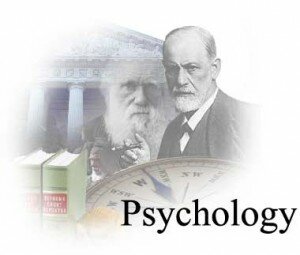
If you can understand people, you can understand what they want you to provide. But don’t be put off by all the hard-to-spell words, if you’re not quite so taken by Psychology as me. Most people who follow my inspirational people posts specifically, will perhaps sway more in the favor of the creative people of success; your JK Rowling’s and your Andy Warhol’s (to be a spoiler.)
And if so, then you’re probably wondering why I’ve chosen a Scientist for this week’s fix. (And yes, Psychology is as much a science as Physics.) Well the truth is, I believe Freud was as much an avid creator as he was a psychologist and I more than admire the way he shook up a weather storm with his controversial ideas.
So I chose to write about Sigmund Freud this week, because I wanted to share with you fellow creators, the idea that we can find inspiration and idols in the rarest of places; even the rarest of places in the field of neurology. Any life that has achieved such a level of success as Freud, is worthy of consideration in my eyes, and anything worthy of consideration, just five minutes of your time, can help you get a step closer in your journey of self-development which is what One Life Success is all about.
Biography
So Who Was Sigmund Freud? The Life and Times of a Legend in his Field…
If you’ve ever done any basic qualification or course in Psychology, even just skim-read a book on the subject perhaps, you’re bound to have come across the name Sigmund Freud. And I don’t have to tell you that this timeless whisper is in itself, is an achievement for any man with the aim of reaching the highest of the highs his field has to offer.
But as with any achievement, this level of prestige was not gained without loss. Without passion and great cost, means without the ‘great’ part. Success is conservative. You get out, what you put in. And it took Freud a lifetime of climbing to get where he did.
But the fact that I’m writing this blog post today, demonstrates that the cost was worth it. And the achievements he has to show for his time are admirable to even the strongest of anti-scientists.
Born on the 6th May 1856, to parents Amalia and Jacob Freud, Sigmund was a child that seemed an unlikely seed to blossom in the field of psychology. His father was a wool merchant, his mother a full-time parent and for a while, they lived in what we know now as the Czech Republic, just like any other ordinary family of the time.
Jacob struggled economically to take care of his growing family of eight (two sons, four daughters) and in 1859 moved them to Vienna in order to take up the old residence they could afford; the Leopoldstadter slum. It was in Vienna that Freud was educated.
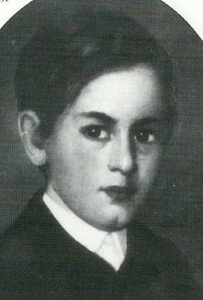 Jews were now by law able to act as free citizens, however the economic problems of the Freud family never lifted. Despite this, Freud began school and was well-known and praised by his teachers for the way in which he read and spoke fluently in multiple languages. He had always had an interest in dreams and as a teenager would document the dreams he had in a diary. It was this fascination that would later fuel what he was famous for; a unique understanding of dream interpretation. It is said that the younger children were told to maintain silence in the house so that Sigmund could concentrate on his studies.
Jews were now by law able to act as free citizens, however the economic problems of the Freud family never lifted. Despite this, Freud began school and was well-known and praised by his teachers for the way in which he read and spoke fluently in multiple languages. He had always had an interest in dreams and as a teenager would document the dreams he had in a diary. It was this fascination that would later fuel what he was famous for; a unique understanding of dream interpretation. It is said that the younger children were told to maintain silence in the house so that Sigmund could concentrate on his studies.
In 1873 Freud graduated from high school and began to study Zoology at the University of Vienna and later in the study of medicine. Freud loved science of all kinds, but had no ambitions in making a living as a traditional Doctor. Things were looking good for the unlikely student. He was knowledgeable, inspired and determined to take the world by the shoulders and shake.
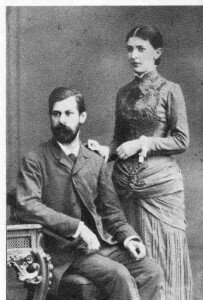 However, life happened and during his time of study, Sigmund met the love of his life Martha Bernays. Freud’s love for science, although never depleted, took a drastic backseat, and he spent most of his days and nights writing letters to Martha instead of continuing his initial studies.
However, life happened and during his time of study, Sigmund met the love of his life Martha Bernays. Freud’s love for science, although never depleted, took a drastic backseat, and he spent most of his days and nights writing letters to Martha instead of continuing his initial studies.
As a result of this new passion, Freud went against all of his beliefs and worked, after graduating, for three years at the Vienna General Hospital in order to pay for the pair to marry, which they did in 1885 going on to have six children in total. He became so busy in later years as a prestigious psychologist that his wife, famously, had to put his toothpaste on his toothbrush ready for him the night before each of his working days.
Working at the hospital gave Freud the opportunity to study children, and eventually the mentally ill. Sigmund became so disgusted by the ways in which they were “treated” both physically (with electric shocks) and mentally (in terms of being misunderstood) it became Freud’s ambition to find better methods himself. Again, like his notebook of dreams, these initial steps in finding a passion to work towards sowed the seeds for his later successes (the theory of psychoanalysis) and failures (praise for the drug cocaine in medical uses). It’s important to remember that we all start somewhere, I suppose.
Freud went to Paris in 1885 to undergo granted study under the care of Jean Charcot, a well-respected neurologist. Freud’s work was greatly influenced by Charcot’s understanding of the mentally ill and on his return to Vienna the following year, Freud set up a private practice, specialising in neurology; inspired by Charcot’s teaching. Freud developed the theory that humans have an unconscious in which sexual and aggressive impulses happen and in 1897, began an intensive analysis of himself in order to develop the ideas he had.
After that the steps kept coming, but now in much faster and larger leaps.
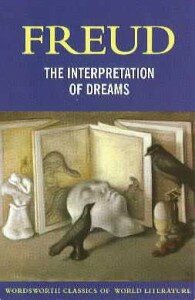 His major work ‘The Interpretation of Dreams’ was published in the early 1900s. And just two years later, Freud was appointed Professor of Neuropathology at the University of Vienna, a post he held until 1938.
His major work ‘The Interpretation of Dreams’ was published in the early 1900s. And just two years later, Freud was appointed Professor of Neuropathology at the University of Vienna, a post he held until 1938.
During this time, Freud developed new ideas, about previously neglected parts of the human brain such as the Unconscious Mind. His obsessions with sex, dreams and the weight of nurture in raising a child had never previously been discovered or thought about. Although some of his theories are dismissed today, most of them formed the foundations for new theories that are currently benefiting people across the globe; particularly, the mentally ill.
Sometimes, it takes a special someone, like Freud, to dedicate themselves to taking a possible false turn in order to map out the whole of a subject and branch onto new ideas. Many people, including the medical establishment apposed Freud’s ideas, particularly his theories about psychoanalysis which had taken a backseat during the war.
But in spite of the conflict and controversy Freud faced, he continued to work and in doing so gained a small group of followers that he had gained the loyalty of throughout his lifetime, and in 1910 the International Psychoanalytic Association was founded with Carl Jung, a close associate of Freud’s.
Jung later broke with Freud and developed his own theories. And like a relay race of success; this passing on of knowledge resulted in the development of knowledge that has shaped and continues to shape the world today.
After World War One, Freud spent less time in clinical observation. But in 1923, he published ‘The Ego and the Id’. His views were abstract for the time and brought focus to a previously neglected side of the brain; something that had never been done before. But as said previously, some people liked him for this, while others did not. In fact, in 1933, the Nazis publicly burnt a number of Freud’s books.
In 1938, shortly after the Nazis annexed Austria, Freud left Vienna for London with his wife and daughter Anna.
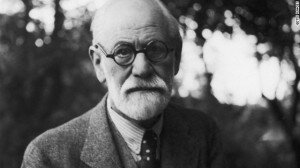
The same year that Freud published ‘The Ego and the Id”, some might consider his most prestigious work, the Father of Psychoanalysis was diagnosed with cancer of the jaw in 1923, and underwent more than 30 operations in treatment. He died of cancer on 23 September 1939 leaving behind an entirely new approach to the understanding of the abnormalities in human psychology and the mentally ill.
He is regarded with the greatest respect as one of the greatest and inspiring minds in the field of science and will be forever admired in the way that fought the conflict surrounding his ideas in order to lay down early and significant foundations.
What I think is most inspiring about Freud was this fighting of conflict that he faced, in being different and thinking different. From the ways in which he stood out from his siblings in childhood, to the ways in which he believed the human mind worked. He was not afraid to put his knowledge and his heart out into a world, ready to analyse, criticise and build upon.
And if it hadn’t been for these big steps, psychology as a whole wouldn’t be where it is today.
Lessons from Life: What We Can Learn from Sigmund Freud…
You may not want to be successful in the world of Psychology like Freud, and you might not be aiming to make steps half as big in whatever you’re looking towards achieving, but it’s important to consider, from any successfully lead life, what made the man or woman able to do what they did.
Think Sigmund’s Wife: The pros and cons of living with Passionate People…
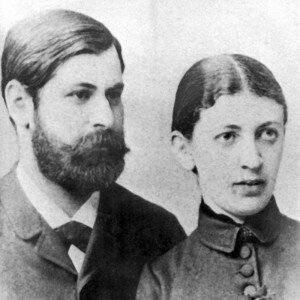
What’s worthy of noting here is the support of Sigmund Freud’s wife Martha Freud and the conflict that Sigmund faced between both his social passions and his work passions.
But when Sigmund Freud met Martha, he was an ambitious 21 year-old who planned to devote his life to science. Six years later, he had fallen so deeply in love with Martha, that he went against his morals in order to make her his wife. And why? Because life had happened.
Already we can see the mistake here. Although it’s great to have someone on side when you’re making your mark in the world, the fact that Freud gave up his love for science to settle into an ordinary life, was risky. And this may make me sound like an anti-romantic here but, as a result, he wasted years of possible research. He was young. Ambitious. Fresh from study. And every thought counts.
It is believed that every day, some of our potential is lost. But years?
Our passions make us who were are. And people can let you down. If his wife had, Freud would have been left with nothing. However, the love and the curiosity for science was inbred into Freud and Martha quickly had to become the kind of wife Freud needed; busy with home and family life.
For the next nine years, she would be almost constantly pregnant, giving birth to six children. She raised their children and managed their household while Freud attended to his medical practice and researched his theories. In a sense, she had to become aware that Science was the first and foremost love of Freud’s life. And there would always be competition between them for his time and attention.
This again was a mistake because he lost the love he initially gave up everything for.
What we can learn from this is three things. Firstly that we should learn from the mistakes of our idols (who knows what he would have created if he hadn’t given everything up as a young and ambitious scientist), secondly that we should make our decisions with care and based on a life of balance in order to achieve fulfilment and finally, that we, as self-developers, don’t give near as much credit to the people around us as we should.
It’s frustrating for the entrepreneurial minded to look around and see that hardly anyone has the same aims as them. Sure. But what we don’t realise is that it’s equally as frustrating to live with someone with such a conflicting aim for life that they are pushed to the side like last month’s theories; having to put up with endless days away from them, a person whose thoughts are elsewhere.
To live a successful life you have to live and be successful. The two things have separate meanings, but lead on from each other. Both must be balanced in order achieve your One Life Success.
Be prepared to take the consequence, as well as reaping the success, for being unique in your thoughts…
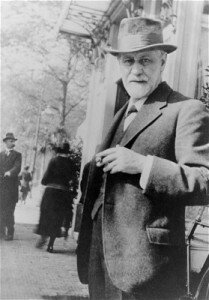 If Freud were alive today and I were to ask him what advice he’d give to young and budding creators I think this would be it. The title is pretty self-explanatory in the fact that to be seen as great you must create something great. And most often, creating something great is a risk.
If Freud were alive today and I were to ask him what advice he’d give to young and budding creators I think this would be it. The title is pretty self-explanatory in the fact that to be seen as great you must create something great. And most often, creating something great is a risk.
But however much you may fear the critics, bear in mind that the criticism you face won’t nearly be as awful as Freud’s; and there certainly will never be any Nazis waiting to burn whatever you create.
In order to gain success you must risk loss. If we could all produce a perfect result first time, we’d all be legends in our field. And even if you fail miserably, there will always be someone (even if that someone is you) waiting in the wings to learn and build on the idea you had.
Think Entrepreneur: Proof that Logic & Innovation are the Ingredients for Success…
Freud had to think different; he had to think innovative and be flexibly in order to create the theories that were unique to him. And his successes in forming and proving these theories involved the same mind set qualities as that of writers and artists across time.
These things all tie in with the Entrepreneurs idea of success through combining logic and creation. So remember, it’s never too late to look at our Global Entrepreneurship Week Posts, and that’s not just me saying ‘Click the button, click the button’ but that’s me telling you that in order to be a creator, you must be able to provide for the people. That turning your creations into something great with an entrepreneurial mind-set is not something limited to those who are starting big and shiny companies.
Freud left behind a brainstorm of ideas and thoughts unique to him. The biggest part of your life will be leaving behind a brainstorm of your ideas and thoughts, making your journey. So when your reading about the life and times of great people like Freud, consider, what would people write about you. If you’re not sure, then give them something to write about today and take a chance.





